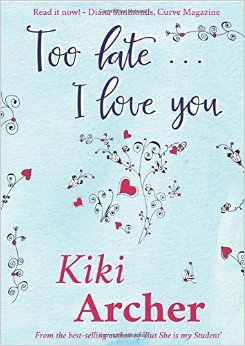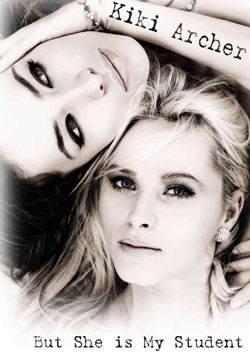It takes something special to soften the heart of a woman as jaded as myself who also has a notoriously difficult time suspending her disbelief; yet, on a snowy Tuesday afternoon, yours truly turned the final page of Kiki Archer’s latest novel and sighed. Bringing the coffee mug to my lips and gazing upon the flakes falling outside my window, there was no denying it. I had been touched.
Connie Parker tells herself she has the life of her dreams. After all, she is the mother of an adorable three-year-old son, Noah, who provides her with boundless love and gives her days meaning. So what if his father, Karl, has chosen to stay with her out of a sense of duty and obligation? Though he remains more committed to his work than either Connie or Noah, Karl has made it clear that she should be grateful for the roof over her head and the opportunity to tend to her son as a stay-at-home mom.
Yet, it is within the under-stairs cupboard where she writes that Connie finds solace and glimmers of possibility, for, through the journey of her protagonist, Bonnie Blythe, she stumbles upon her own personal truth and takes to penning a precedent for the unfolding of all for which she yearns, which comes to manifest alongside her burgeoning friendship with Maria, the mocha-eyed single mother who shows up one morning at playgroup.
Too Late… I Love You is nothing if not a page-turner. In spite of all attempts to set the book aside in order to tend to my to-do list, I couldn’t help but surrender to my need to discover what happens next, abandoning my best intentions for the hours that lay ahead. Not an inkling of the formulaic or predictable finds its way into Archer’s tale. Thus, my every expectation was shattered with each new twist and revelation. My attention remained rapt throughout, though I found a rather overdone thread of banter and innuendo toward the beginning to grow old quick.
Yet, not all of the humor was lost on me. The descriptions of Earth Mother’s pendulous breasts, unabashedly displayed at playgroup, had me laughing out loud; and, Connie’s visit to the sex shop provided some pretty interesting visuals, to say the least. Connie’s best friend, Ryan, contributes a hearty dose of campness to the tale, which truly wouldn’t be the same without him.
In spite of its impressive entertainment value, Too Late… I Love You addresses important topics such as same-sex parenthood, bisexual stigma and closeting in a tone that is affirming without being victimizing and courageous without coming across as preachy. Each occasion is handled without a break in the humor or pause in the plot, propelling the story’s momentum and subtly foreshadowing some of the most memorable scenes.
In truth, I’m incredibly grateful to have encountered Archer’s writing and will be exploring her earlier works as well, for there is something tremendously freeing in laughing out loud while allowing yourself, in the moment, to believe in fairytales, even if not your own.




